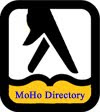By Mister Curie
"Bi America" was written by William E. Burleson and published in 2005. William Burleson is bisexual and had been publicly involved in bisexual politics for nearly 15 years when his book was published. The book is filled with quotes from bisexuals which come from the Bi History Project in Minnesota, personal interviews conducted by Mr. Burleson, and a bisexual online support group. Mr. Burleson also collected data from an online survey of bisexuals.
Mr. Burleson heavily relies on the stories of others to document bisexuals living in America. In the introduction he states, "What is important are the stories of living people, living their lives. That is what I set out to do with this project: tell our story. . . I believe what really matters are the people and their stories . . . Bi people, as is true of many other groups, are often reduced to stereotypes. I hope to reduce bisexuality to its humanity."
I felt the overriding theme throughout this book revolves around the word "community." What is a community? What is the bisexual community? What does it look like? Where can it be found? Mr. Burleson explores bisexual communities across America and reports on the stories of the individuals composing those communities, creating a landscape of bisexuals in America. He concludes with an exploration of how the internet has shaped the bisexual community and what the future holds for the bisexual community.
Many times throughout the book, I found myself reflecting on the MoHo community and asking myself the same questions of the MoHo community that Mr. Burleson was trying to answer about American bisexual communities. Mr. Burleson defines a community as a "functional group brought together by commonalities and sharing a culture of some kind to some degree." For there to be a community, people must feel a part of that community, and the community is known to outsiders through its institutions. It seems to me that the MoHo community is largely held together by the MoHo directory, which is a primary source for visibility to those outside the community and is a very visible reminder of those who belong to the MoHo community. Another defining institution of the MoHo community is the monthly meet-ups hosted by Scott and Sarah, which have expanded to other regular MoHo meet-ups that I am aware of in the Northwest and Northeast. I believe one of the intentions of the MoHo Map is to help to organize such meet-ups in resonable geographic areas. The MoHo facebook group provides an online gathering place.
I think one reason the book caused me to reflect so much on the MoHo community was due to its use of stories to illustrate the rich diversity of American bisexual communities. I have similarly come to know the MoHo community through its stories, shared on its blogs. The MoHo community has been, and continues to be, an open and inviting place where I can share my story and compare it to the stories of others as I seek to understand who I am. It was within the MoHo community that I finally found stories of others that paralleled mine, stories that resonated with my experiences and stories that provide me with insight and guidance as I forge a path forward. These were stories that let me know I was not alone in being attracted to men, that let me know my interpretations and responses to those feelings were normal within the Mormon worldview I held, that let me know that other men who are attracted to men also get married to women for a variety of reasons and sometimes before they come out to themselves about their attractions to men.
So I think it is only natural that in my sincere attempts to contemplate the bisexual orientation I would find a collection of bisexual stories against which to compare my story and experiences to see if it resonates with me. References to this book will be frequent in future blog posts, time permitting, that contemplate bisexuality.
Divorce
5 years ago

















Hey, thanks for the shout out!
ReplyDeleteI looked at your page to your MoHo directory, and that’s what I’m talking about: building community. It seems so fundamentally human to feel connected, to feel a sense of belonging, to feel we have a home. I really applaud your work!
--Bill
I feel very honored to have you stop by my blog, Bill. Thanks for leaving a comment.
ReplyDeleteNice to see the word "bisexual" here, Andy. I sometimes feel that I'm the only one, or one of very few, who uses the word, or identifies with the concept. Thanks for giving some visibility to the topic
ReplyDeleteBi for now, but perhaps bi forever,
Ned
Ned, I hope to hear input from you on future bisexuality posts. I am interested to hear how your experience is similar and different from the things I will be writing about bisexuality.
ReplyDelete